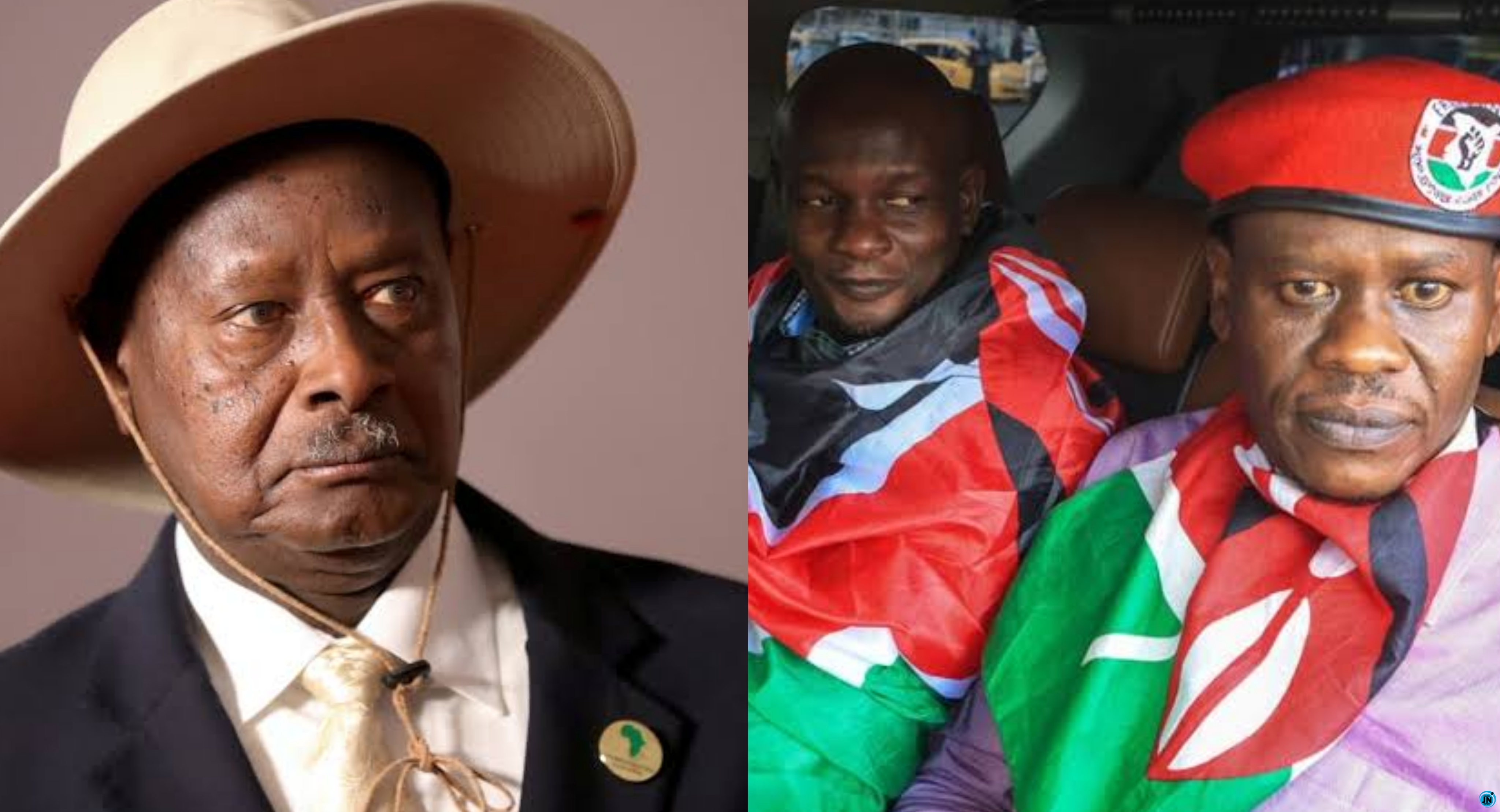
Ugandan President Yoweri Museveni has publicly confirmed that two missing Kenyan activists, Bob Njagi and Nicholas Oyoo, were arrested and detained by Ugandan security agents, ending weeks of speculation and concern regarding their whereabouts.
The activists had been missing for over five weeks, prompting widespread outrage and condemnation from human rights organisations, political commentators, and citizens across East Africa. Their sudden disappearance had ignited fears of political persecution and abuses of power, especially given the activists’ involvement in opposition politics in Kenya and support for regional democratic movements.
Reports indicated that Njagi and Oyoo were last seen in October, when masked men allegedly forced them into a vehicle after attending a rally in support of Ugandan opposition leader Bobi Wine, according to the BBC. Their disappearance triggered a series of diplomatic inquiries, social media campaigns, and protests calling for their safe return.
Museveni Confirms DetentionIn a televised interview broadcast on Saturday, President Museveni acknowledged that the two men had been detained by state security forces. He controversially described them as “experts in riots” and revealed that they were “put in the fridge for some days,” a statement that drew both alarm and criticism from international observers and human rights groups for its cavalier reference to their treatment while in custody.
Museveni accused Njagi and Oyoo of interfering in Uganda’s domestic affairs and warned against foreign intervention or support for political unrest within the country. “The ones who are doing that game here in Uganda will end up badly,” he cautioned, emphasizing that Uganda would take stringent measures against perceived external interference in internal political matters.
The longtime Ugandan leader, who has ruled the country for nearly four decades and plans to contest next year’s national election, added that the activists were eventually released following appeals from unnamed Kenyan officials, underscoring the role of regional diplomacy in securing their freedom.
Activists Reunited with SupportersUpon arrival at Jomo Kenyatta International Airport in Nairobi, Njagi and Oyoo were warmly welcomed by cheering supporters, family members, and journalists documenting the activists’ return. The reunion was marked by a sense of relief and gratitude, as well as renewed calls for justice and accountability for human rights violations in the region.
Bob Njagi recounted the harrowing ordeal, describing it as terrifying and life-threatening. “Thirty-eight days of abduction was not easy. We didn’t think that we were going to come out alive because we were being abducted by the military,” he said, offering a firsthand account of the psychological and physical strain endured during the detention.
Kenya’s Foreign Minister, Musalia Mudavadi, confirmed that sustained diplomatic engagement between Kenya and Uganda had been crucial in facilitating the activists’ release, highlighting the importance of dialogue, negotiation, and cross-border cooperation in protecting citizens’ rights.
Human Rights Groups ReactHuman rights organisation Vocal Africa hailed the release of Njagi and Oyoo as a significant victory for civic activism and regional solidarity. The organisation emphasized that the outcome demonstrates the potential for citizens to advocate for their rights while also holding governments accountable within the East African Community framework.
“Let this moment signal an important shift towards upholding the human rights of East Africans anywhere in the East African Community,” Vocal Africa stated, underscoring the broader implications of the activists’ detention and release for civil society, democracy, and human rights advocacy across the region.
The incident has reignited conversations about freedom of expression, the treatment of political activists, and the responsibilities of governments in ensuring the safety of individuals engaging in legitimate political and civic activities. The case also illustrates the delicate balance between national security concerns and respect for human rights, a theme that continues to resonate across East Africa and the international community.[/p>